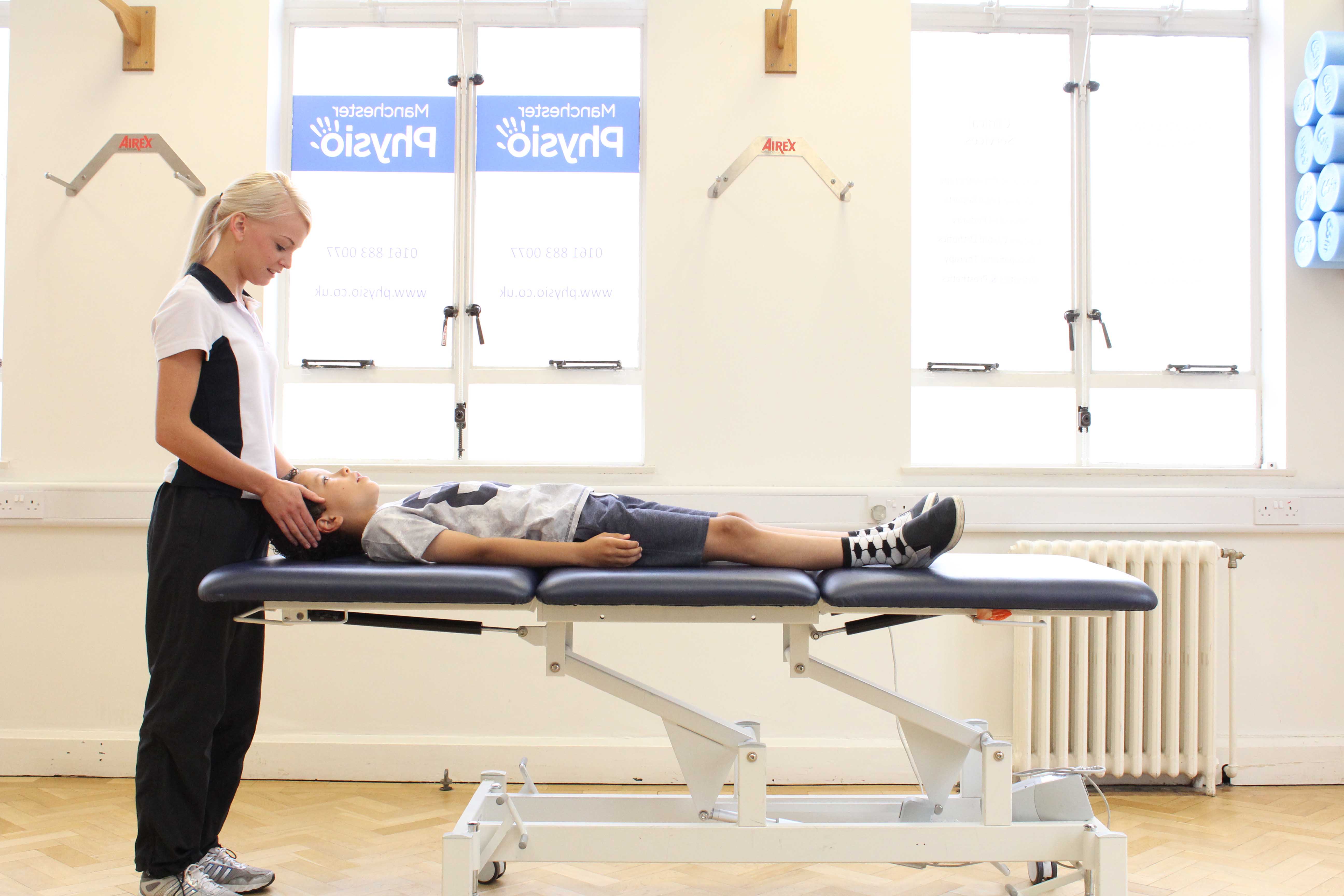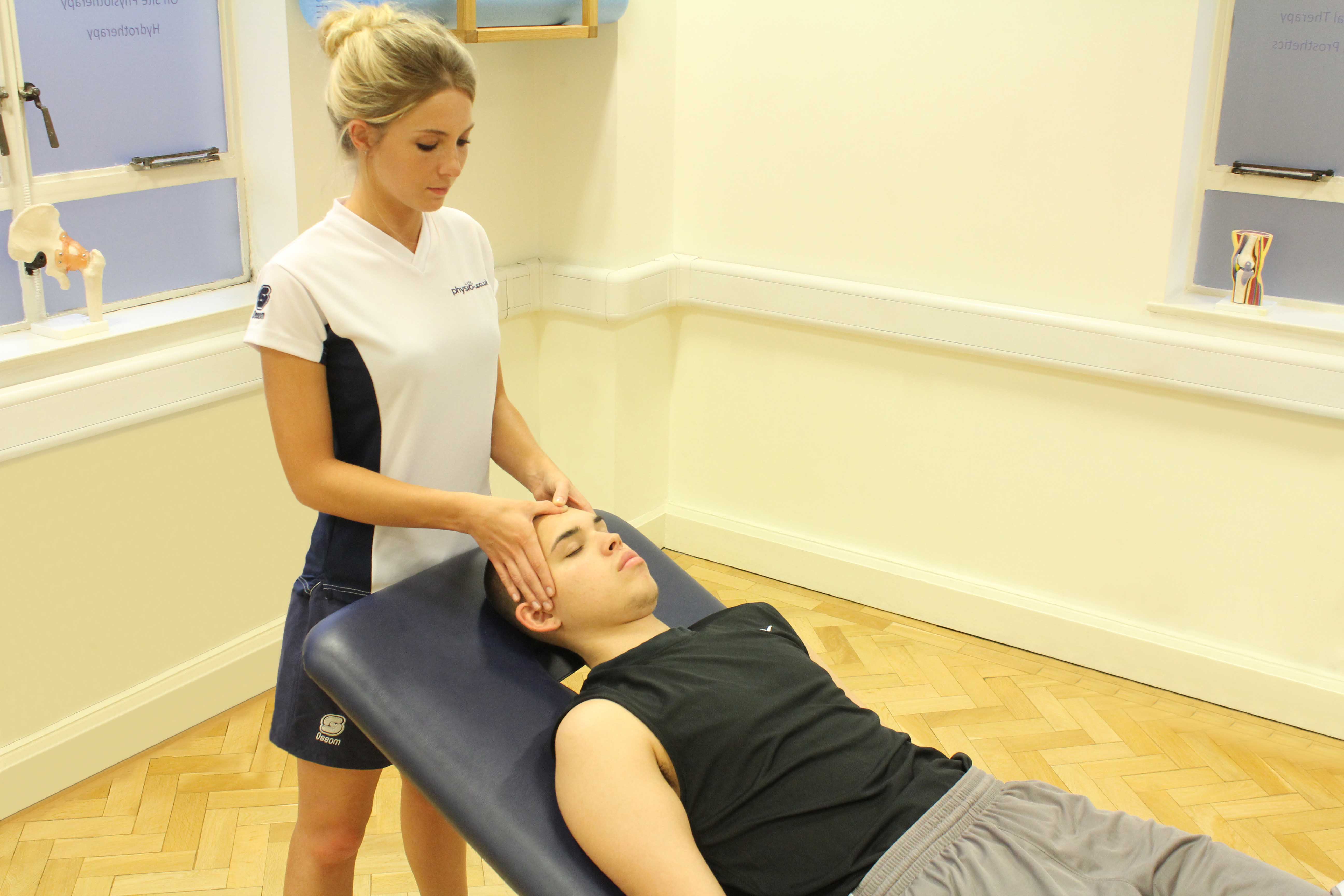What is a traumatic brain injury/head injury?
A traumatic head or brain injury (TBI)occurs when the head is hit by something or shaken violently causing damage to the brain and affecting physical and cognitive development. A TBI is usually a result of direct injury following a fall or motor vehicle collision.
The signs and symptoms of a TBI can be very different depending on which part of the brain has been injured and how severely. Children who suffer severe brain injuries can experience lasting problems with everyday function such as crawling, standing and walking.
Paediatric physiotherapy is vital following a head injury to help your toddler reach their maximum physical ability and development.
 Above: prorpioception and co-ordination exercises conducted by an experienced paediatric physiotherapist
Above: prorpioception and co-ordination exercises conducted by an experienced paediatric physiotherapistSymptoms of a TBI
Symptoms of a TBI will depend on the extent of the damage and the area of the brain that has been affected. Symptoms will vary from child to child but may include:
- Muscle weakness of one or both sides of the body
- Tonal changes - increased muscle tone (spasticity) and or reduced muscle tone (flaccidity)
- Reduced sensation
- Slowing or loss of developmental milestone (i.e. crawling, sitting, walking at the right time)
- Difficulty with balance and coordination in sitting and standing
- Fatigue
- Pain
- Difficulty speaking
Physiotherapy following TBI
Our specialist paediatric physiotherapists at Physio.co.uk are experienced at assessing and treating toddlers following a head injury.
Physiotherapy treatment at Physio.co.uk will help you child make the best possible recovery by helping them learn new skills or relearn old ones so that they reach their maximum physical potential.
Toddlers with severe head injuries may require assistance to move and follow instructions. Physiotherapy will therefore be centered on facilitating normal movement, improving positioning and increasing muscle activity to help them reach their developmental milestones and improve their quality of life.
It is important to start physiotherapy soon after leaving hospital for the best possible recovery as the brain as adaptable and significant improvement can be made. Our paediatric physiotherapists at Physio.co.uk commonly see individuals that have been discharged from the NHS and have gone on to make significant improvements.
 Above: Balance and co-ordination exercises supervised by a paediatric physiotherapist
Above: Balance and co-ordination exercises supervised by a paediatric physiotherapistPhysiotherapy treatment at Physio.co.uk will be centered on:
- Increasing head and trunk control
- Increasing range of movement
- Enhancing awareness of body position
- Improving ability to roll, sit and stand
- Increasing muscle strength
- Promoting normal movement in the arms, trunk and legs
- Improving balance
- Improving posture
- Relieving pain
- Promoting independence with functional tasks
- Enhancing quality of life
- Practicing functional activities using familiar toys and pictures to encourage your child to move in a normal pattern.
- Exercises that are fun and stimulating to strengthen muscles around the trunk, arms and legs and maximise independence.
- Stretching exercises to lengthen tight tissue and reduce tone.
- Advice about posturein lying, sitting and standing
- Balance training focusing on sitting and standing balance to help maximise mobility
- Breathing exercises and coughing if they have a bad chest.
- Advice about walking aids and specialist seating if necessary.
- Manual handling training sessions for carers and families which will include therapeutic handling and positioning techniques to help maintain a clear chest, increase comfort and promote postural alignment. The therapeutic use of hoist and slings can also be taught.
If you would like more information on how physiotherapy can help your child, or to book an appointment please call 0330 088 7800, or book online today!

 0330 088 7800
0330 088 7800

































